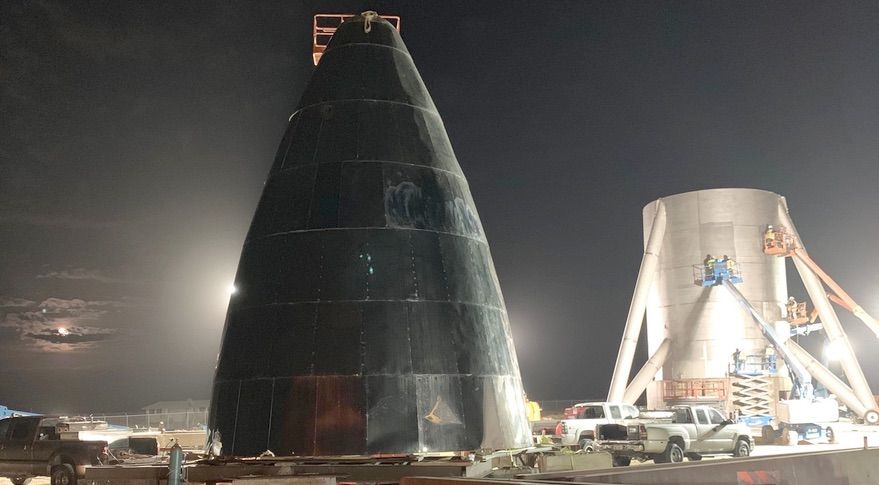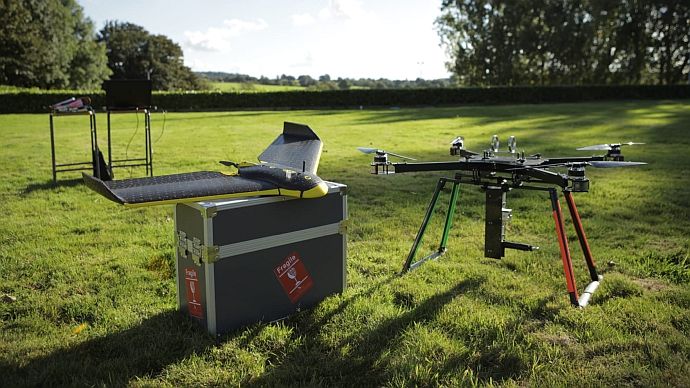Imagine a submarine turning water into hydrogen fuel and breathable oxygen.



Following SpaceX’s successful debut launch, rendezvous, and recovery of Crew Dragon, NASA has published official photos documenting the scorched spacecraft’s Atlantic Ocean splashdown, GO Searcher’s recovery, and the duo’s return to Port Canaveral shortly thereafter.
Aside from offering a number of spectacularly detailed views of Crew Dragon after its inaugural orbital reentry, NASA’s photos also provide an exceptionally rare glimpse of the spacecraft’s PICA-X v3 heat shield, revealing a tiled layout that is quite a bit different from Cargo Dragon’s own shield. A step further, CEO Elon Musk offered updates on March 17th about progress being made towards a new, metallic heat shield technology meant to make ablative shields like those on Dragon outdated, serving as a striking bit of contrast to SpaceX’s newest spacecraft, potentially just a dozen or two months away from already becoming anachronistic.


A common calcium-channel blocking heart medication has been tentatively linked to increased risk of sudden cardiac arrest. The research comes from the European Sudden Cardiac Arrest network (ESCAPE-NET), though additional work is needed to determine whether the findings can be replicated. At the heart of the study were medications amlodipine and nifedipine, which are prescribed for high blood pressure and chest pain called angina.


Sure, it’ll be great when a drone can drop off your Amazon Prime goodies or 7-Eleven snacks just minutes after you order them… but it’ll be even better when they help regrow millions of trees.
That’s what U.K.-based BioCarbon Engineering has set out to do. The company has been developing a high-tech system that uses drones to replant deforested areas — even in areas where planting wouldn’t be feasible using older methods.
BioCarbon’s system utilizes drones for two separate stages of the process. First, they’re sent into the target area to create a detailed, three-dimensional map. Once they’ve completed that step, the planting drones return to the site to do their thing.
Reaction Engine’s Synergetic Air-Breathing Rocket Engine (SABRE) is closer to reality with ESA and the UK Space Agency (UKSA) green lighting the preliminary design of the demonstrator engine core. The successful review of the hypersonic engine, which is designed to act as both a jet and a rocket, means that the company can move on the major testing milestones in the next 18 months.

It’s not just that millennials have astonishing facility with computers, taking to every cell phone and software or video game release like birds to the sky. And it is not only that they seem more mechanically adept than other generations, with fine motor skills far beyond those of older people (with their ham-handed, clunky attempts at tiny phone keyboards).
It’s that they seem to be becoming one with the technology.
Anyone who’s ever had to remove a cell phone from beneath a teenager’s bed pillow to allow for a good night’s sleep (uninterrupted by incoming texts and calls) or peel an avid gamer away from the console long enough to eat dinner knows what I’m talking about. The devices are not just tools — they are extensions of young bodies and minds. In fact, according to a recent Nielsen survey, eighty-three percent of Generation Y admit to sleeping with their phones.
